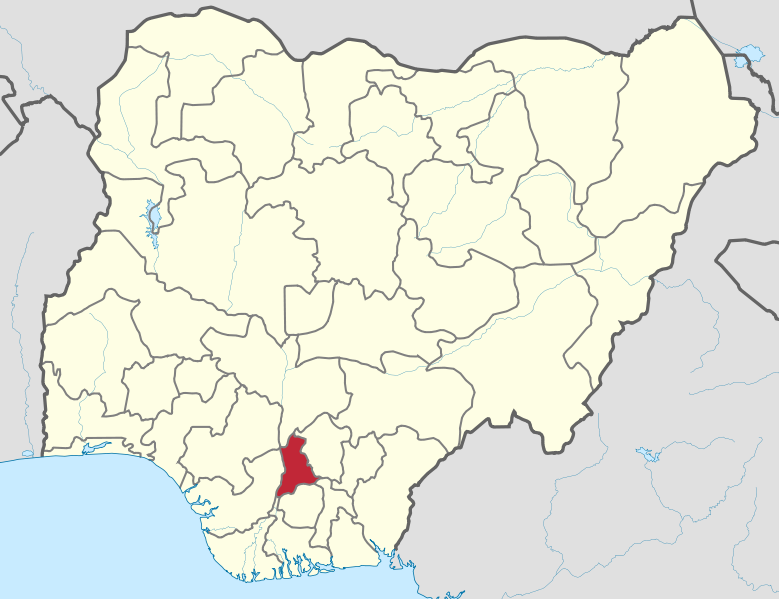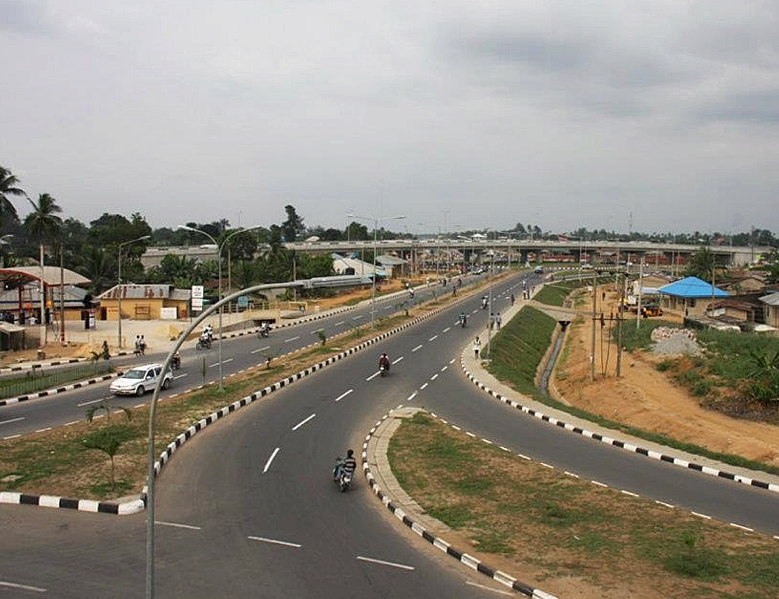Background
Anambra is a state in southeastern Nigeria. Its name is an anglicized version of the original ‘Oma Mbala’, the native name of the Anambra River.
The capital and seat of government is Awka. Onitsha, Nnewi, and Ekwulobia are the biggest commercial and industrial cities respectively.
The state’s theme is “Light Of The Nation”. Anambra possesses a history that stretches back to the 9th century AD, as revealed by archaeological excavations at Igbo-Ukwu and Ezira; Great works of art in iron, bronze, copper, and pottery works belonging to the ancient Kingdom of Nri, revealed a sophisticated divine Kingship administrative system which held sway in the area of Anambra from c. 948 AD to 1911.
Old Anambra State was created in 1976 from part of East Central State, and its capital was Enugu. A further re-organisation in 1991 divided Anambra into two states, Anambra and Enugu. The capital of Anambra is Awka. Anambra State consists of twenty-one (21) Local Government Areas.

Governor: Chukwuma Charles Soludo
Capital: Awka
Motto: Light of the nation
Official Website: www.anambrastate.gov.ng
Major Towns: Onitsha, Nnewi, Awka
Geography
Boundaries are formed by Delta State to the west, Imo State and Rivers State to the south, Enugu State to the east and Kogi State to the north.
The origin of the name is derived from the Anambra River (Omambala) which is a tributary of the River Niger.
The indigenous ethnic group in Anambra state are the Igbo (98% of population) and a small population of Igala (2% of the population) who live mainly in the north-western part of the state.
Anambra is the eighth most populated state in the Federal Republic of Nigeria and the second most densely populated state in Nigeria after Lagos State.
The stretch of more than 45 km between Oba and Amorka contains a cluster of numerous thickly populated villages and small towns giving the area an estimated average density of 1,500–2,000 persons per square kilometre.
Natural Resources
Anambra is rich in natural gas, crude oil, bauxite, ceramic and has an almost 100 percent arable soil. Anambra state has many other resources in terms of agro-based activities like fishery and farming, as well as land cultivated for pasturing and animal husbandry.
Anambra State has the lowest poverty rate in Nigeria. In the year 2006, foundation laying ceremony for the first Nigerian private refinery Orient Petroleum Refinery (OPR) was made at Aguleri area.
The Orient Petroleum Resource Ltd, (OPRL) owners of OPR, was licensed in June 2002, by the Federal Government to construct a private refinery with a capacity of 55,000 barrels per day.


Education
Awka, the state capital, is also the center of Nigeria’s metalwork and carving industries.
Educationally, Anambra is a centre of excellence. There are the Nnamdi Azikiwe University (UNIZIK), Awka a federal university with College of Medicine situated at Nnewi.
The UNIZIK Nnewi runs a modern Teaching Hospital with facilities also at Umunya and Ukpo.
UNIZIK also has faculty of pharmaceutical sciences at Agulu, School of Preliminary studies at Mbaukwu and College of Agriculture.
The Anambra State University, formerly known as Anambra State University of Science and Technology (ASUTECH), with two campuses, one in Uli, and another at Igbariam; the Federal Polytechnic, Oko; Nwafor Orizu University of Education (formerly known as the Nwafor Orizu College of Education), Nsugbe.
Private Universities include The Tansian University, Umunya, Madonna University, Okija, St Paul’s University, Awka.
Literacy rate in the state is comparatively high compared to other states. Primary and secondary school enrollment in the state is one of the highest in the country.
Consequently, Anambra state has the highest number of JAMB candidates going after the limited number of spaces in Nigeria’s tertiary colleges, and since 2011/2012 till (2015) has made the best results in both WAEC and NECO conducted senior secondary school examinations.
Industries
Nnewi – Nnewi is home to many major indigenous manufacturing industries including Ibeto Group of Companies, Cutix and ADswitch, Uru Industries Ltd, Omata Holdings Ltd, Cento Group of Companies, Coscharis of Companies Group, Innoson Group of Companies, Ebunso Nig. Ltd, John White Industries, Ejiamatu Group of Companies, Chicason Group, Louis Carter Group, etc.
The great majority of industrialists in the cluster of spare parts factories in Nnewi are also traders, and most of these traders are producing one or more of the products they specialize in marketing as traders (usually motor vehicle parts), and most began by distributing their products through their preexisting distribution networks. Nnewi is part of eastern Nigeria’s industrial axis.
The town has through culturally grounded institutions that act as sophisticated networks expanded to include an international dimension through trading relations with exporters from Asia.
Since 1970, Nnewi residents have controlled approximately 80 to 90 percent of the motor-parts trade in Nigeria.
Nkwo Nnewi Market is the major import and wholesale point for motor spare parts in Nigeria.
The industrialists of Nnewi are adapting foreign technology to local needs, providing employment to thousands, and making available goods and services which are relevant actual needs of the Nigerian citizens.
The first indigenous car manufacturing plant is located in the city, while the first wholly Made-in-Nigeria motorcycle was manufactured in Nnewi by the National Agency for Science and Engineering Infrastructure (NASENI).
Onitsha – Lying at the bridge between Eastern Nigeria and Western Nigeria, and between the densely settled Igbo hinterland and the oil-rich creeks of the Niger Delta, Onitsha is strategically positioned as a regional hub for trade and logistics in Eastern Nigeria.
As the Nigerian economy has expanded, so too has Onitsha played a central role in the trade and distribution of manufactured goods from Lagos and food produce from various northern towns to buyers from all over Eastern Nigeria and across the West African region.
Consequently, Onitsha has grown to become one of Nigeria’s most significant market towns and its Main Market, one of the largest markets in West Africa, a center point where billions of naira are transacted every day.
Onitsha’s role as a strategic gateway for trade and commerce continues to expand and deepen and the Anambra State government has made a conscious effort to encourage industrialization over the past few years through infrastructure renewal and directed investment.
In 2012 the state government, through a joint venture, attracted SAB Miller to invest in Onitsha Brewery, which started production in August.
It was the first large-scale investment in Onitsha since Premier breweries, makers of the Premier Beer, established production in Onitsha in the early part of 1980’s.
In January it was announced that upgrades to the value of $110 million would triple the output of beer and malt drinks.
Other factories have sprung up in the popular Harbor Industrial Layout including Orange Drugs, a soap-making factory; Krisoral, a bottle cap manufacturing company; and PZ Cussons.
The Nigerian federal government’s initiative to expand transportation on inland waterways is expected to benefit Onitsha. Already, a small port has been constructed on the Banks of the River Niger.
Credits: Wikipedia
